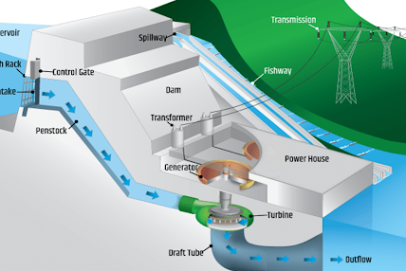Development trends of electronic contracts in the next 5 years
Technology trends such as blockchain, AI, and enhanced security, as well as legal standardization, will shape the future of electronic contracts, bringing great benefits to businesses and consumers.
Electronic contracts are becoming an important part of today’s digital economy. With the advancement of technology and the need for convenience, speed, and safety in business transactions, electronic contracts are envisioned to grow exponentially over the next 5 years. According to a report by MarketsandMarkets, the global e-contract market is expected to reach USD 9.07 billion by 2023, increasing at a compound annual growth rate (CAGR) of 28.4% from 2018 to 2023. Below are the key trends predicted to mold the future of electronic contracts.
1. Integration of Blockchain technology
Blockchain is considered one of the most revolutionary technologies and exerts a powerful effect on various fields, including e-contracts. Transparency, high security, and automation in smart contracts can be gained through this technology. The application of blockchain to e-contracts is anticipated to sharply escalate in the next 5 years, which will help minimize fraud risks and ensure data integrity. In Vietnam, an electronic contract solution that utilizes blockchain and digital signatures has been offered by FPT, tailored for signing process optimization and security assurance.
2. Enhancement of Security and Privacy
Security and privacy are always the top concerns in the use of e-contracts. The rise of cybersecurity threats has stimulated the development of advanced security solutions such as end-to-end encryption, multi-factor authentication (MFA), and new security protocols, as well as their integration into electronic contract systems. Responding to this demand, FPT has launched FPT.eContract, a platform that stores contracts previously successfully signed on FPT Smart Cloud in accordance with the operational standards and information security specified in the ISO/IEC 27001:2013, ISO/IEC 27017:2015, and ISO/IEC 27018:2019 standards. This solution will protect user’s data and hence win their trust.
3. Application of Artificial Intelligence (AI)
Artificial intelligence plays an important role in automating and improving the efficiency of electronic contracts. AI is capable of analyzing, evaluating, and predicting contract-related risks, as well as assisting in the creation and management of complex contracts. Leveraging this technology, FPT has provided an AI-powered solution, FPT.eContract, designed to optimize the contract inspection and verification process, thereby reducing errors and increasing work efficiency.
4. Standardization and Legalization
One of the major challenges facing e-contracts is the differences in legality and standards between countries and regions. In the coming years, greater effort is predicted to be put into globally standardizing and legalizing electronic contracts to facilitate cross-border transactions. Cooperation between international organizations and governments will also be encouraged to define common legal frameworks and standards for barrier reduction and trust development in electronic transactions. In Vietnam, FPT.eContract is one of the products that provide certified (blue-ticked) e-contract services integrated with the Vietnam Electronic Contract Development Axis for the maximization of e-contracts’ reliability and legality. Blue-ticked e-contracts ensure transactions are carried out in a transparent and secure manner.
5. Development of the paperless economy
The growing trend of digitalization is speeding up the elimination of paper use in business processes. A paperless economy where costs, time, and resources are significantly saved can be boosted through the adoption of electronic contracts. According to Decision 466/QD-BTTTT dated March 28, 2023, Vietnam is aiming for a target of over 80% of enterprises employing e-contracts by 2025. This will make e-contracts indispensable to businesses’ faster and more efficient transactions.
Current Status and Trends in Vietnam
E-contracts are increasingly popular in Vietnam, especially in e-commerce and financial services. According to the Vietnamese Ministry of Industry and Trade, the value of e-commerce transactions in Vietnam reached USD 13.2 billion in 2020 and is expected to grow enormously in the coming years. This achievement includes a considerable contribution from e-contracts through the creation of a fast and secure trading environment.
As one of the leading technology corporations in Vietnam, FPT is offering an electronic contract solution that harnesses blockchain technology and digital signatures. The solution can both optimize the contract signing process and ensure data security and integrity. It also provides users, including large and small-size enterprises, with easy access and use of the service through an FPT’s online platform and consequently helps reduce contract processing time, increase transparency, and improve business efficiency.
In the next 5 years, e-contracts will doubtless bloom and become more important than ever in all business areas. Technology trends such as blockchain, AI, and enhanced security, as well as legal standardization, will shape the future of e-contracts and bring substantial benefits to companies and consumers. The transformation brought by e-contracts optimizes business processes, which in turn boosts the development of the global digital economy.
| Exclusive article by FPT IS technology experts
Author Dao Thu Quynh, Project Manager of the electronic signing solution |













